POTASSIUM CITRATE TABLET - ORAL
PHONETIC PRONUNCIATION: (poh-TASS-ee-um SYE-trate)
COMMON BRAND NAME(S): Urocit-K
GENERIC NAME(S): potassium citrate
Uses
USES: This medication is used to make the urine less acidic. This effect helps the kidneys get rid of uric acid, thereby helping to prevent gout and kidney stones. This medication can also prevent and treat certain metabolic problems (acidosis) caused by kidney disease. Citric acid and citrate salts (which contain potassium and sodium) belong to a class of drugs known as urinary alkalinizers. If you have a condition that requires you to limit your intake of potassium and sodium, your doctor may direct you to take a product that is lower in potassium and sodium.
How to use POTASSIUM CITRATE TABLET - ORAL
HOW TO USE: Take this medication by mouth as directed by your doctor. Follow your doctor's directions carefully. This medication should be taken with meals or a bedtime snack. Swallow this medication with a full glass of water or other liquid (8 ounces or 240 milliliters) unless your doctor directs you otherwise. Do not crush, chew, or suck the tablets. Doing so can release all of the drug at once, increasing the risk of side effects. Also, do not split the tablets unless they have a score line and your doctor or pharmacist tells you to do so. Swallow the whole or split tablet without crushing or chewing. Do not lie down for at least 10 minutes after taking this medication. Do not take this medication on an empty stomach. Your doctor may direct you to eat a low-salt (low-sodium) diet and drink lots of fluids. Follow your doctor's directions closely. Do not use salt substitutes that contain potassium. Dosage is based on your medical condition and response to treatment. Take this medication exactly as prescribed. Do not increase your dose or take this more often without your doctor's approval. Use this medication regularly to get the most benefit from it. To help you remember, take it at the same times each day. While taking this medication, you may need to test the pH (acidity) of your urine using special paper. The pH will help determine the proper dose. Consult your doctor or pharmacist for more information.
Side Effects
Precautions
Interactions
Overdose
Images
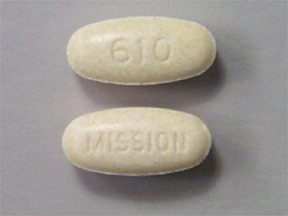
- color
- light yellow
- shape
- oblong
- imprint
- 610, MISSION
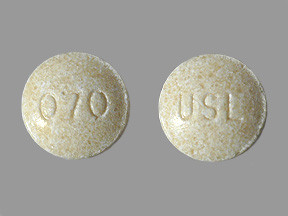
- color
- tan
- shape
- round
- imprint
- USL, 070
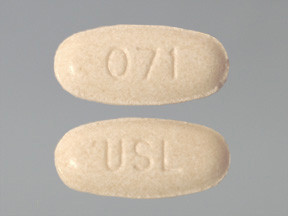
- color
- tan
- shape
- oblong
- imprint
- USL, 071
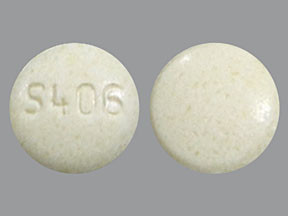
- color
- pale yellow
- shape
- round
- imprint
- S406
Reviews
Faq for POTASSIUM CITRATE TABLET - ORAL
- Potassium citrate tablet is used to prevent and treat kidney stones by increasing urine pH and decreasing urinary calcium excretion.
- Take this medication by mouth as directed by your doctor. It is usually taken with meals or a bedtime snack to prevent stomach upset. Drink plenty of fluids while taking this medication to help prevent kidney stones.
- Common side effects include diarrhea, stomach pain, nausea, vomiting, and increased urination. If any of these side effects persist or worsen, contact your doctor.
- It is important to inform your doctor about all the medications you are taking, including prescription drugs, over-the-counter medications, vitamins, and herbal supplements. Some medications may interact with potassium citrate, so your doctor can adjust the dosages to prevent any potential interactions.
- The time it takes for potassium citrate to start working may vary depending on the individual and the specific condition being treated. It is important to follow the recommended dosage and give the medication enough time to take effect. Consult your doctor for more information.
- It is generally advisable to avoid or limit alcohol consumption while taking potassium citrate as alcohol can increase the risk of dehydration and kidney stone formation.
- If you miss a dose, take it as soon as you remember. However, if it is close to the time for your next dose, skip the missed dose and resume your regular dosing schedule. Do not double the dose to catch up.
- Do not stop taking this medication without consulting your doctor, even if you feel better. Stopping the medication abruptly may increase the risk of kidney stone formation. Follow your doctor's instructions for proper dosage and duration of treatment.
- Your doctor may recommend certain dietary changes, such as reducing sodium intake and increasing fluid intake, to complement the effects of potassium citrate in preventing kidney stone formation. It is best to consult your doctor or a registered dietitian for specific dietary guidelines.
Disclaimer
IMPORTANT: HOW TO USE THIS INFORMATION: This is a summary and does NOT have all possible information about this product. This information does not assure that this product is safe, effective, or appropriate for you. This information is not individual medical advice and does not substitute for the advice of your health care professional. Always ask your health care professional for complete information about this product and your specific health needs.
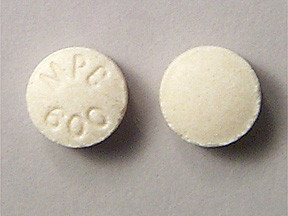
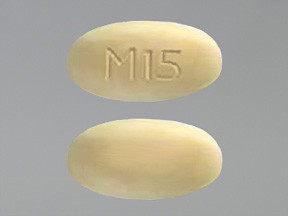
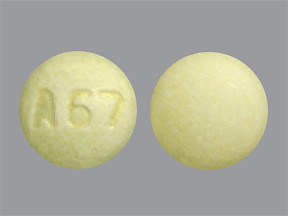
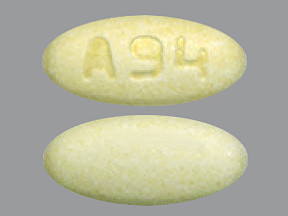
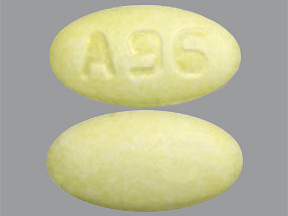
No Reviews Yet